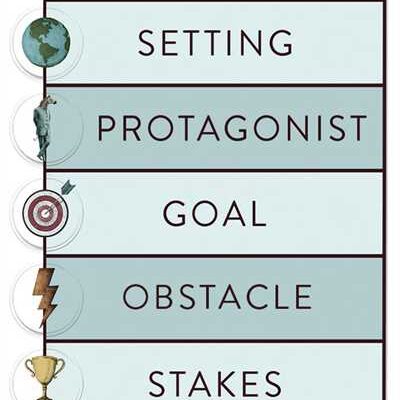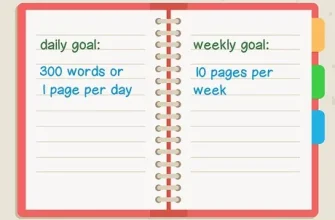
When it comes to writing a screenplay, one of the most important things you need to have is a great logline. Think of it as the elevator pitch for your movie, where you have just a few seconds to grab the reader’s attention and make them want to know more. A good logline sets the tone for your entire story and gives an idea of what the journey will be like.
But what exactly is a logline? In simple words, it’s a one or two-sentence summary of your story that tells the reader what the main conflict is, who the main character is, and what sets your story apart from others in the same genre.
Let’s take a look at some examples to help you better understand what a logline is and how it works. “Gladiator”: “A former Roman general sets out to seek revenge against the corrupt emperor who murdered his family and took his throne.” “Titanic”: “A young aristocrat falls in love with a poor artist aboard the ill-fated ship and struggles to survive the sinking.” As you can see, these loglines give you a good idea of what the movies are about and what the main stakes are.
So, how do you write a good logline? There are a few key rules to keep in mind. First, keep it short and simple. You only have a few words to grab the reader’s attention, so make each word count. Second, make sure to include the main conflict and the main character. This is what sets your story apart and makes it unique.
Another important thing to consider is to focus on the passion or the struggle of the main character. This is what will make the reader care about your story. And finally, don’t be afraid to let your creativity shine. The best loglines are the ones that stand out and make the reader curious about what happens next.
So, if you’re a screenwriter looking to sell your screenplay or just someone who wants to improve your writing skills, don’t miss the importance of a good logline. It may seem like a small thing, but trust me, it can make a big difference. Take the time to craft a compelling logline that captures the essence of your story and leaves the reader wanting more. Remember, the logline is your first chance to make an impression, so make it count!
Loglines: What They Really Are and How to Write a Great One
A logline is a brief summary that captures the essence of a movie or screenplay in just a few sentences. It is the main tool that sets it apart from other films and helps sell the idea or concept to potential readers or investors. A good logline is a powerful tool for screenwriters, as it can make or break their chances of getting their work noticed.
When working on a logline, it is important to remember that simplicity is key. You want to hook the reader with just a few words, making it intriguing and captivating. Your logline should introduce the main character, their struggle, and the journey they will embark on. It should also give a hint of what sets the story apart from others, making it unique.
One common mistake that writers make when crafting a logline is providing too much information. Remember, the goal is to entice the reader, not summarize the entire screenplay. Stick to the main idea and avoid giving away too many plot details.
Looking at successful movies can be a great source of inspiration. For example, the logline for the movie “Gladiator” could be: “A former Roman general seeks revenge against the corrupt emperor who murdered his wife and destroyed his family, leading him on a perilous journey in the gladiator arena.” This logline captures the main character, his struggle, and the unique setting of the story.
Another rule to keep in mind when writing a logline is to make it specific. Avoid generic words and phrases that could be applied to any movie. Instead, focus on the unique aspects of your story and make it stand out.
Writing the perfect logline can be a little challenging, but it is worth the effort. It is the first impression that a potential reader or investor will have of your work, so make it count. Remember, a great logline can help sell your movie or screenplay and open doors to opportunities in the industry.
What is a Logline for a Movie or Screenplay

A logline is a one or two sentence summary that encapsulates the main idea or concept of a movie or screenplay. It is a concise and powerful tool used in the film business to quickly convey the essence of a story and generate interest.
Loglines are crucial for screenwriters as they serve as a pitch for their work. In just a few words, a logline must capture the attention of potential investors, producers, or studios and convince them that the story is worth pursuing.
Writing a logline can be a challenging task, as it requires condensing a complex narrative into a simple and captivating description. However, a well-crafted logline can make all the difference in getting the green light for a project.
The perfect logline provides a clear understanding of what the movie or screenplay is about, sets the tone, and sparks curiosity in the reader. It should convey the unique and compelling aspects of the story, making it stand out from the countless other loglines in the industry.
For example, the logline for the movie “Gladiator” could be: “A Roman general sets out on a journey of vengeance to avenge the murder of his wife and save Rome from the corrupt emperor who betrayed him.”
Simple loglines like this one are effective because they give the reader a glimpse into the story and its central conflict. They provide a sense of the protagonist’s struggle and the stakes involved.
Loglines are not just for the business side of filmmaking; they also help screenwriters themselves. When writers are struggling to develop their story ideas, loglines serve as a compass that keeps them focused on the main goal and prevents them from getting lost in unnecessary details.
Whether you’re a professional screenwriter or a beginner, crafting a compelling logline is a skill that can greatly enhance your work. It forces you to distill the essence of your story into its core elements and helps you uncover the most captivating aspects of your narrative.
Remember, the rule of thumb for loglines is to keep them short, intriguing, and concise. They should spark curiosity and leave the reader wanting to know more. A great logline could be the key to selling your screenplay or securing funding for your movie, so investing time and effort into perfecting it is crucial.
In the world of screenwriting, where competition is fierce and attention spans are short, a well-crafted logline could make all the difference. So let your passion for storytelling shine through in your loglines, and let them help you on your journey to becoming a successful screenwriter.
How to Write a Logline
When it comes to writing a logline for your screenplay, there are some key rules and guidelines that can help you craft the perfect one. A logline is a brief summary of your movie or TV show that captures the essence of the story, while also enticing the reader or potential buyer.
First and foremost, a logline should be short and to the point. You have just a few words to grab the reader’s attention and make them interested in your story. So, focus on the main idea and the journey of your protagonist.
One important rule to remember is to avoid giving away the ending or any major twists. You want to create curiosity and intrigue, not spoil the whole story. Instead, focus on the setup and the conflict that the main character will face.
Another important thing to keep in mind is that a logline should be simple and easy to understand. Avoid using jargon or overly complex language. Remember, you’re trying to sell your idea to someone who may not be familiar with your industry or genre.
One way to make your logline more effective is to use specific words that set the tone and give the reader a clear idea of what to expect. For example, if you’re working on a historical drama, you could mention the Academy Award-winning movie “Gladiator” to give an idea of the genre and the type of story you’re telling.
When writing a logline, it’s also important to focus on the emotional journey of the main character. What is their struggle, and what is at stake for them? This will help the reader connect with your story on a deeper level.
Remember, loglines are not just for the benefit of potential buyers or readers. They can also be a great tool for you as a writer. Writing a logline can help you clarify your ideas and stay focused on the main story arc.
So, if you’re struggling with your screenwriting, don’t underestimate the power of a well-crafted logline. It can be a little challenging at first, but with practice and some guidance, you can create loglines that really capture the essence of your story and help you sell your screenplay.
Let your passion for screenwriting shine through in your loglines, and don’t be afraid to seek feedback from other writers or industry professionals. Remember, the main goal is to create a logline that grabs attention, piques interest, and makes people want to know more.
And finally, don’t forget to have fun with it! A logline is your opportunity to showcase your creativity and hook potential readers or buyers. So, let your imagination run wild and see where your logline journey takes you!
Let Your Passion Rule Your Writing
As writers, we often find ourselves working in a world that sets little value on passion. There are countless sources out there that tell us what to write, how to write, and what the market is looking for. But the truth is, the most powerful thing a writer can have is their own unique passion.
When it comes to writing loglines, passion is crucial. A logline is a simple one to two sentence summary of your screenplay or movie idea. It’s the main selling point that tells the reader or potential buyer what your film is about. And if you don’t have passion in your logline, it’s going to be hard to sell your idea.
Think about some of the most successful films of all time. When we hear loglines like “A group of gladiators struggle to survive and seek vengeance in Ancient Rome” (Gladiator) or “A journey to Titanic sets a passionate artist and a wealthy wife on a collision course with destiny” (Titanic), we immediately feel the passion that went into creating those stories.
Passion is what makes a logline stand out from the rest. It’s what makes your screenplay unique and memorable. And without it, your logline will just be one of the many others that are easily forgotten.
But how do you let your passion rule your writing? Here are some tips to help you:
1. Find what really excites you
Think about the movies that you love and why you love them. What is it about those films that inspires you? What kind of stories or themes are you drawn to? Finding what truly excites you will help you infuse your own writing with passion.
2. Don’t be afraid to take risks
Passion is often born out of taking risks. Don’t be afraid to think outside the box and explore new ideas. Remember, the academy is not looking for safe and predictable stories. They want something fresh and original, so don’t be afraid to push the boundaries.
3. Let your imagination run wild
One of the great things about writing is that there are no limits. Let your imagination take you on a journey and see where it leads. Don’t be afraid to dream big and write with enthusiasm. The more your passion shines through, the more compelling your logline will be.
4. Don’t forget why you started
When the writing process gets tough, it’s easy to lose sight of why you started in the first place. But always remember your initial passion and let it guide you through the tough times. Keep your eye on the end goal and don’t give up. Your passion will be the driving force that keeps you going.
So, let your passion rule your writing. Don’t be afraid to embrace your ideas and let them shine through in your loglines. Remember, passion is what sets you apart from the rest and gives your writing the power to captivate and move your audience. Let it be the driving force in your creative journey.
Sources

If you’re looking for sources to help you write a logline, there are several great options to consider. Here are some of the most useful ones:
- Screenwriting books: There are many books out there that offer advice and guidance on logline writing. Some popular choices include “Save the Cat!” by Blake Snyder and “The Screenwriter’s Bible” by David Trottier.
- Online courses: If you prefer a more structured approach, there are plenty of online courses available that cover the topic of logline writing. Websites like Udemy and MasterClass offer courses taught by industry professionals.
- Writing workshops: Attending a writing workshop or seminar is a great way to learn from experienced screenwriters and get feedback on your logline. Look for workshops in your area or consider attending a screenwriting conference like the Austin Film Festival.
- Script analysis: There are services available where you can pay to have your screenplay analyzed and receive feedback on your logline. This can be a valuable resource for improving your logline and overall screenplay.
Remember, the most important thing is to continue working on your logline. It may take some time and effort to get it just right, but don’t get discouraged. Keep trying different approaches and seek feedback from others.
As the famous quote from the movie “Gladiator” goes, “What we do in life echoes in eternity.” So don’t be afraid to let your passion and struggle shine through in your logline. It’s the thing that sets your movie apart and makes it memorable.
When writing a logline, keep in mind the “one sentence rule.” Try to condense your story into a single sentence that captures the main idea and hooks the reader. This will help sell your script and get people excited about your movie.
Lastly, don’t forget that words have power. The way you phrase your logline can make a big difference. Use strong verbs and descriptive language to create a vivid image in the reader’s mind.
In the business of filmmaking, a logline is your calling card. It’s the first thing that agents, producers, and other industry professionals will see. So make sure yours is a strong and compelling one.










